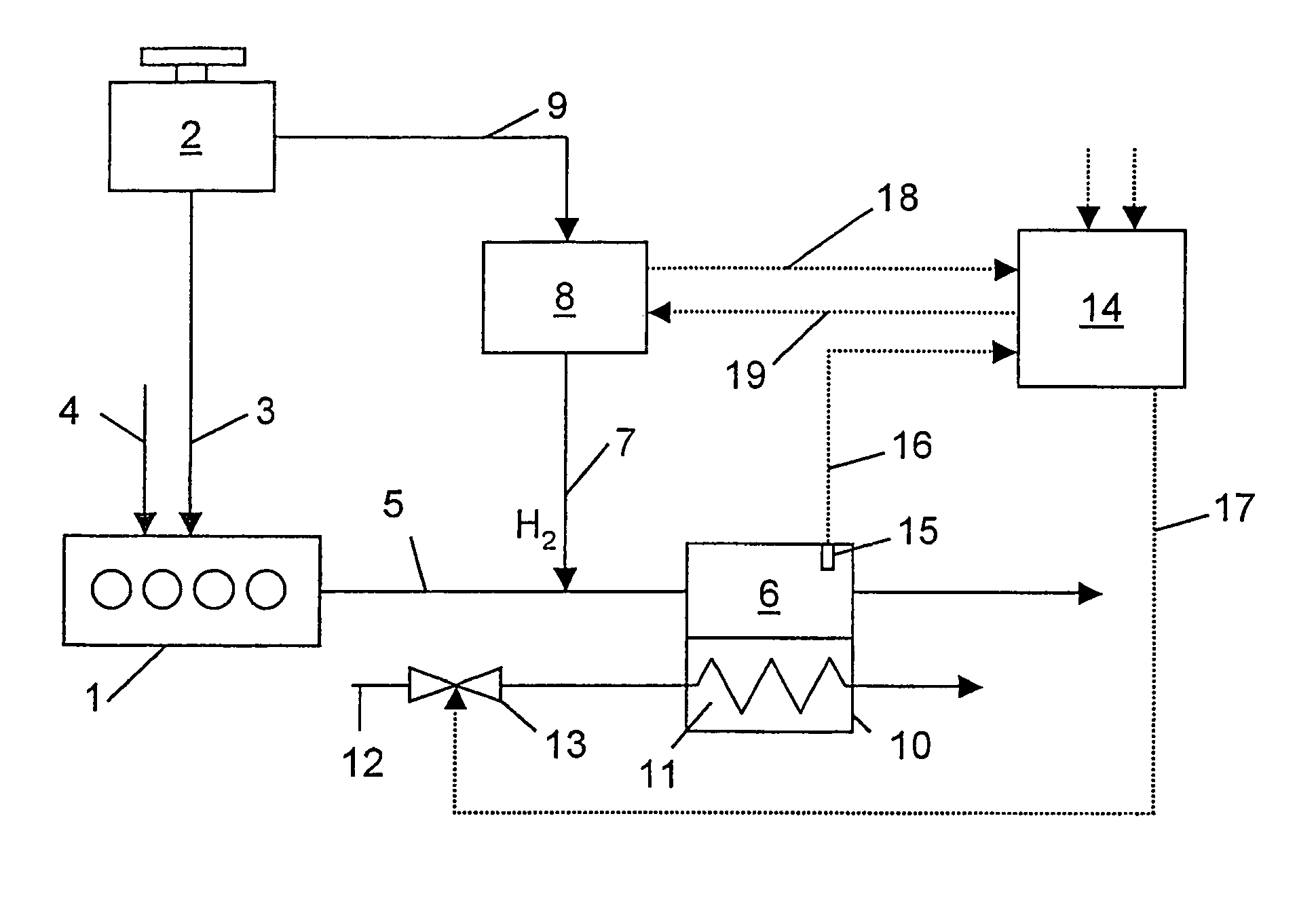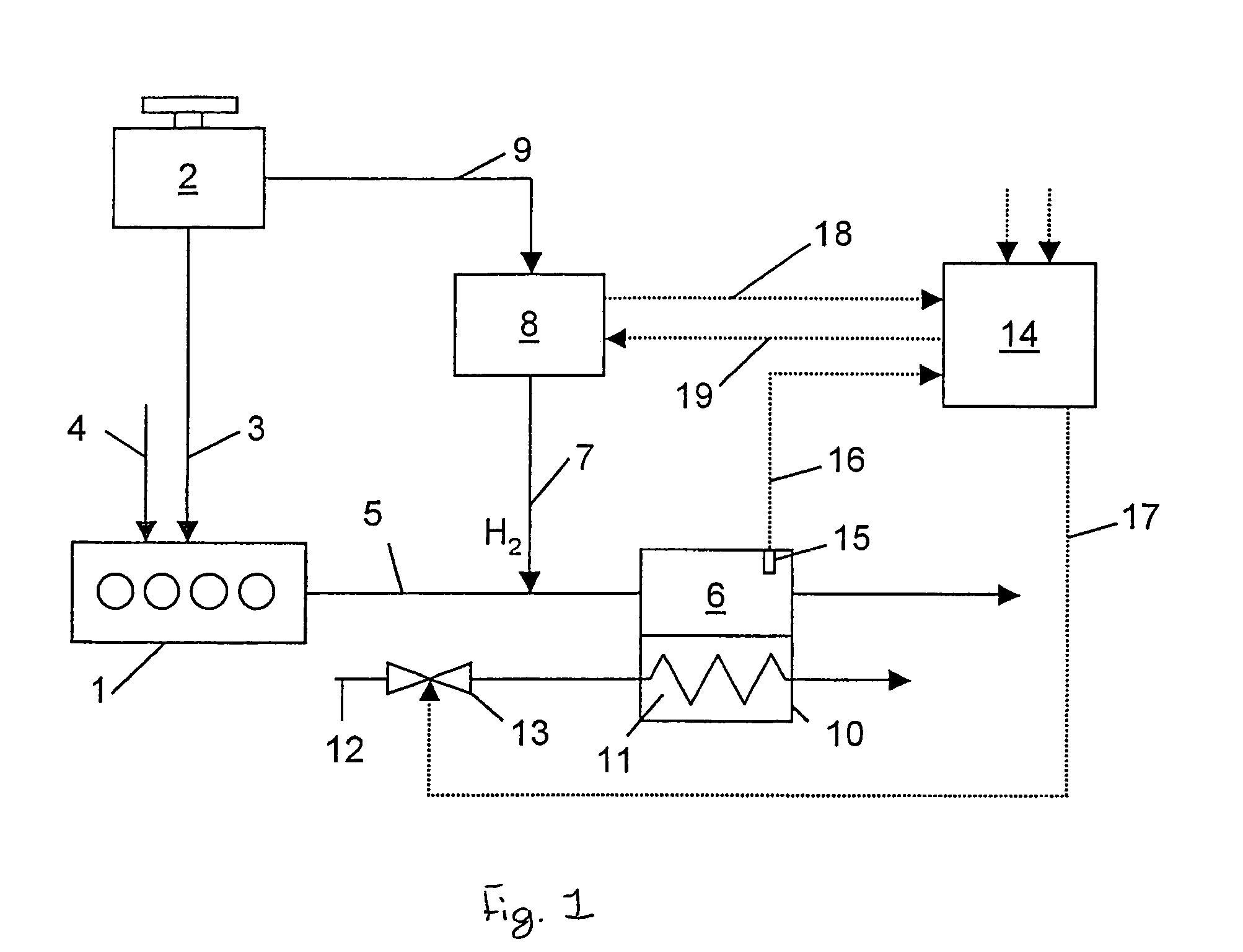System and method for reducing nitrogen oxides in the exhaust of an internal combustion engine
a technology of nitrogen oxides and nitrogen oxides, which is applied in the direction of exhaust treatment, engine components, mechanical apparatus, etc., can solve the problems of comparatively low exhaust temperature, gasoline engines running on a lean mixture are faced with the same problems, and it is not possible to completely eliminate all gaseous, etc., to achieve a higher conversion rate, less hydrogen, and improved reaction selectivity
- Summary
- Abstract
- Description
- Claims
- Application Information
AI Technical Summary
Benefits of technology
Problems solved by technology
Method used
Image
Examples
Embodiment Construction
[0012]Referring to FIG. 1, an internal combustion engine 1 is supplied with fuel from a fuel tank 2 through a first fuel line 3 and with air through an intake line 4. In internal combustion engine 1, fuel is combusted together with the air, and the resulting exhaust is discharged through an exhaust line 5.
[0013]Exhaust line 5 contains a DeNOx catalytic converter 6, in which nitrogen oxides contained in the exhaust are converted by a reducing agent at a suitable catalyst. Hydrogen or a hydrogen-rich gas is used as the reducing agent, and is introduced into exhaust line 5 upstream of DeNOx catalytic converter 6 through a hydrogen feed line 7. In addition to DeNOx catalytic converter 6, exhaust line 5 may contain other components (not shown), such as, for example, additional oxidation catalysts or an exhaust sound absorber.
[0014]The hydrogen or hydrogen-rich gas is produced on-board the vehicle in a hydrogen-generating reactor 8 from the fuel used in internal combustion engine 1. Fuel ...
PUM
 Login to View More
Login to View More Abstract
Description
Claims
Application Information
 Login to View More
Login to View More - R&D
- Intellectual Property
- Life Sciences
- Materials
- Tech Scout
- Unparalleled Data Quality
- Higher Quality Content
- 60% Fewer Hallucinations
Browse by: Latest US Patents, China's latest patents, Technical Efficacy Thesaurus, Application Domain, Technology Topic, Popular Technical Reports.
© 2025 PatSnap. All rights reserved.Legal|Privacy policy|Modern Slavery Act Transparency Statement|Sitemap|About US| Contact US: help@patsnap.com


